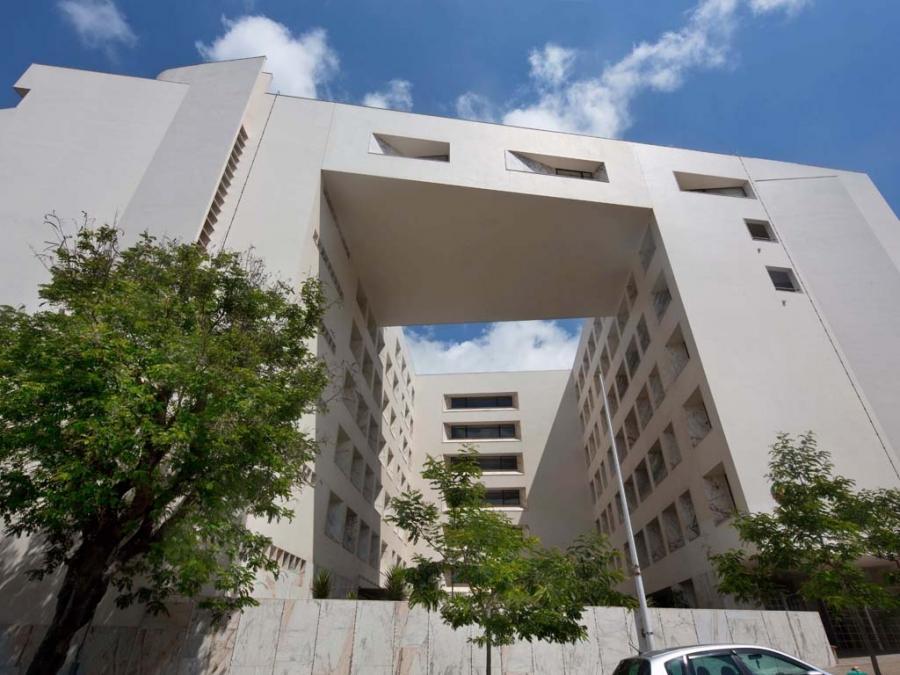Africa-Press – Mozambique. The Administrative Tribunal (TA) has upheld a ruling declaring null and void the administrative acts of the Bank of Mozambique in its intervention at Moza Banco, rejecting an appeal filed by the central bank.
According to the TA’s ruling, the issue at stake is the way in which the central bank carried out its intervention at Moza Banco, citing at the time the bank’s financial situation and systemic risk , an intervention announced in a notice published on November 14, 2016, in the Government Gazette, the Boletim da República (BR).
“It is easy to see that it came into force and began to produce legal effects on 14 November 2016, when in fact Moza Banco was intervened [in] by the Bank of Mozambique (BM) on 30 September 2016, before the publication of the controversial notice,” reads the TA ruling, unanimously passed by the 16 judges and notified on 1 April of this year, in response to the appeal to the same decision of the previous instance, filed by the central bank, whose governor has been Rogério Zandamela since August 2016, and by Moza.
“Therefore, the appellant is mistaken and contradicts itself in its position when it argues that in order to legitimise Moza Banco’s intervention it was not necessary to publish the notice of the BM governor in the BR, however it proceeded to publish the relevant notice 44 days after its intervention,” adds the TA ruling, which fully confirms the first instance decision, favourable to the applicant, the Moçambique Capitais, a minority shareholder (around 3%), but which at the time was the majority shareholder and the founder of the Moza bank.
In 2016, Moza Banco came under the leadership of Kuhanha, the management company of the BM employees’ pension fund (currently holding over 60% of the bank’s share capital), following the intervention of the central bank, at a time when Moza had the Portuguese Novo Banco [successor to Banco Espírito Santo] as one of its main shareholders (49%).
An official source from Moza Banco contacted by Lusa said that the institution would not comment on the content of the TA ruling, only guaranteeing that “the bank remains focused on stability, solidity and commitment to its customers, employees and partners”, continuing “to grow in a sustainable manner and in line with the best practices in the financial sector in Mozambique”.
Lusa also sought comment from the Bank of Mozambique about this ruling, but without success.
The TA ruling recalls that at the time of the intervention, Moçambique Capitais held a 51% shareholding in Moza Banco, worth 1,085,875,000 meticais (€15.5 million, at the current exchange rate). However, this stake was now worth 217,175,000 meticais (€3.1 million), due to the “reduction in share capital immediately followed by an increase in share capital, with a consequent devaluation induced in the value of the share certificate, from 25,000 meticais to 5,000 meticais (€358 to 71.5)”.
“The BM should never have intervened in Moza Banco without first publishing the notice in the BR, as otherwise it would be contradictory” to the Constitution, so “the decisions taken by it from September 30, 2016 to November 14, 2016, have no legal value and are therefore null and void”, the ruling adds, thus annulling “materially administrative acts”, such as “the intervention and adoption of the extraordinary measure to reorganize Moza Banco”, and the appointment of a board of directors.
The ruling stresses that the Constitution “requires that the notices of the governor of the BM be published in the Brazilian newspaper, under penalty of legal inefficiency”, and therefore the “request for a declaration of nullity [of the appeal] is not upheld”.
The Administrative Tribunal’s ruling also states that the intervention was made “without legal support”, classifying the position of the BM as “antagonistic”, “when it argues that in order to legitimise the intervention in Moza Banco it was not necessary to publish the governor’s notice”, doing so later, when “44 days had already passed”.
It adds that “at the end of the investor selection procedure”, Kuhanha “proved to be the most favoured by complying with the basic requirements”, recalling that the governor is the chairman of the board of directors of the company, whose share capital “is entirely held by the BM and which subscribed the majority of the capital of Moza Banco” in its recapitalisation.
For More News And Analysis About Mozambique Follow Africa-Press






